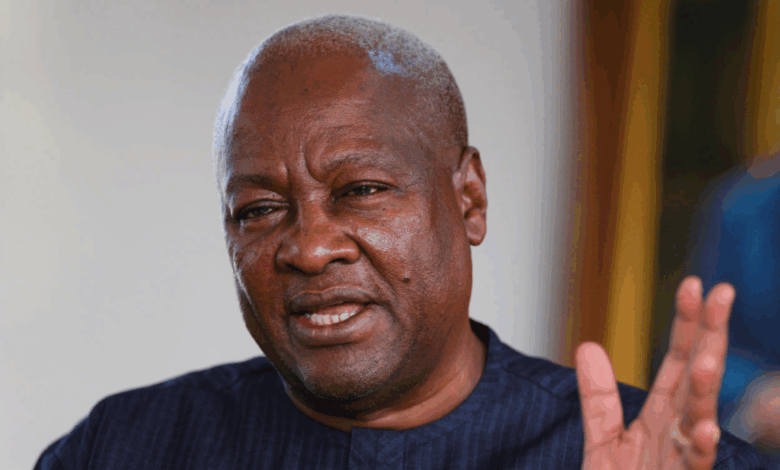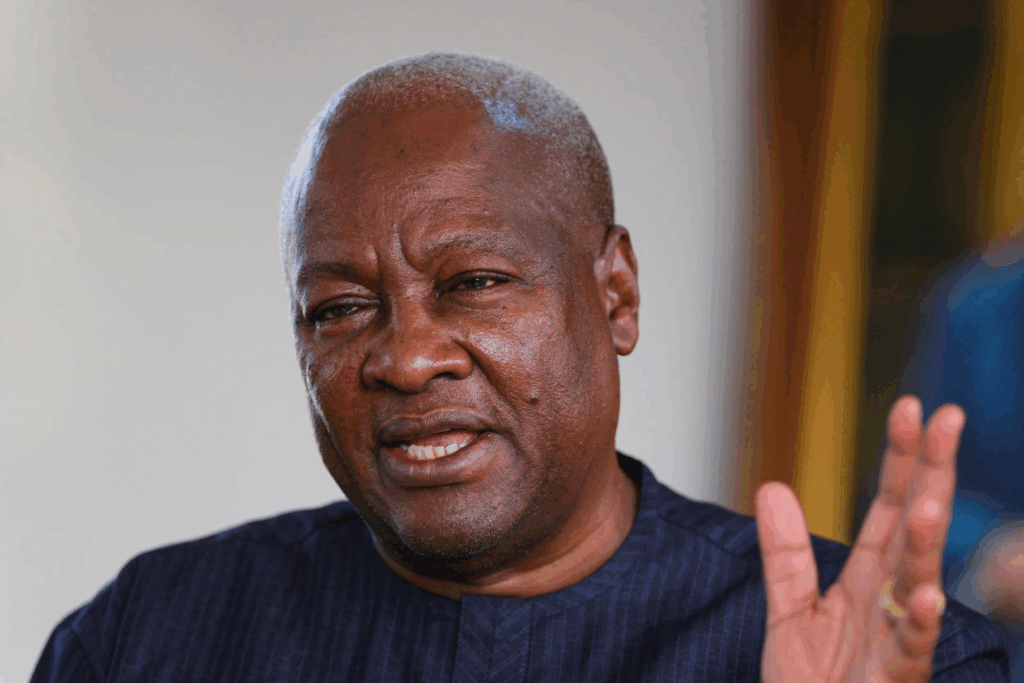Manasseh Azure Awuni: Mahama must do this to honour his father


In 2012, I had the privilege of receiving a signed copy of President John Mahama’s riveting memoir, “My First Coup d’Etat: And Other True Stories from the Lost Decades of Africa.” That book was part of the package I received as a winner of the National Youth Achievers Awards (media excellence category), which the President instituted.
As someone addicted to buying books, President Mahama’s book joined a long queue of yet-to-be-read books until I was about to write “The Fourth John: Reign, Rejection & Rebound.” I read the president’s memoir the way good books are read, inhaling the beauty of the writing, highlighting enchanting portions, and religiously taking notes.
John Mahama enjoyed a privileged upbringing, and he did not concoct hardship to sweeten his story. His father was among the first generation of northern Ghana politicians, serving as the first Northern regional minister under Nkrumah. But the young Mahama’s real enjoyment was long after his father had left politics.
Mr. E.A. Mahama, for that was John Mahama’s father’s name, became a successful rice farmer in the Northern Region in the 1970s. In a decade noted for military upheavals and also for General I.K. Acheampong’s “Operation Feed Yourself,” any rice farmer of today would yearn for that “lost decade” in Ghana’s history. Of John Mahama’s life as a rice farmer in Tamale, he writes:
“Our family owned six cars. We boys were never in want of anything. We had record players, bicycles and scores of friends. We went to discos regularly and wore the latest fashions…Dad would give us pocket money and stipends so we could afford to buy whatever records we wanted. He even bought us a little convertible MG so that we could zip around town whenever we wanted to. By then, he could afford it. The risk he’d taken was paying off well; his commercial rice farm was wildly successful.”
Today, the son of that “widely successful” commercial rice farmer is the President of Ghana, and rice farmers are threatening to boycott the National Farmers’ Day next month. Why? Their produce for the last farming season is glutting, and they dread the fate of this year’s harvest.”
I recently interviewed farmers and farmer groups as part of a research project. They painted a distressing picture of how they take loans at killer interest rates to farm but are unable to sell their produce because of the influx of cheap imported rice nearing expiration.
In an apparent response to their cries, the government announced an instruction to the National Buffer Stock Company (NAFCO) to purchase the surplus foodstuffs to prevent glut, but the farmers complain of two main reasons. First, the amount allocated to NAFCO is too meagre, and it’s not for the purchase of only rice. And the prices NAFCO is proposing to buy their maize and rice will cripple them.
The second worry of the rice growers and millers’ association is that none of their members have yet secured a supply contract from NAFCO since the announcement. Their question is: Who is NAFCO buying from?
So, what do they want?
They are not asking for something too difficult to achieve. The government and its agencies buy foodstuffs for prisons, armed forces, boarding schools, the armed forces, and special initiatives, such as the School Feeding Programme.
The government can direct all these institutions to buy local rice, instead of rebagging expired imported rice to feed our students, as we witnessed in the dying days of the Akufo-Addo regime.
This way, our rice and maize farmers will not only get an adequate market for their sweat, but they will also be encouraged to produce more, employ more people, and reduce the pressure on the local currency.
When I arrived in America’s State of Nebraska, where I’m currently studying, I realised that this “rural” state has nothing significant to boast about apart from its vast and seemingly barren land, bereft of the trees and lush vegetation we have in Ghana. The state of Nebraska has no gold, no oil, diamonds, or any of the many natural resources Ghana is glutted with. It is a dry, bare land, which is unfarmable in a greater part of the year, from fall to winter.
But with a population of less than two million people, Nebraska has a GDP that is almost twice the GDP of Ghana. The state boasts of feeding the world. It is noted for large-scale commercial farming, especially of maize, soybean, and livestock.
My university’s “football” team is called the Cornhuskers.
Research in agriculture is a priority. The cattle population in Nebraska is about four times the state’s human population. When the International Students Fellowship organised a tour to a Nebraskan farm, I went to learn about their ways.
Farming here is a serious business, and the farmer I interviewed said farmers here receive help from their government when things go wrong.
Ghanaian farmers cannot compete with their counterparts in countries where farming receives immense support from the government. Some farmers get subsidies and cheap credit to produce in large quantities and dump them in countries like Ghana, where some of the importers evade taxes and sell cheaply.
Of course, we invest in subsidies, but the implementers are often most interested in the procurement side of the intervention, who gets what contract to supply fertilizer, and how to game the system to build political war chests. In the end, the intended beneficiaries get very little, and the nation touts its impact more in words than in output.
Mr. President, you may also consider lifting the ban on the export of grain. Rising prices are an incentive for a farmer to produce more the next season. If the cost of production exceeds the revenue a farmer makes in a season, he or she will have no motivation to expand production in the subsequent season. So allow the market forces to work when they favour the farmer.
It is within your means to make farming lucrative. Let us make our farmers succeed so that we can point the “galamseyers” to a viable and decent alternative use of our fertile lands.
Our rice farmers now have improved varieties that can compete favourably with imported rice. Our children must not feed on expired or expiring rice, while rice producers in Ghana die of heartache resulting from unpaid loans and mounting interests.
Mr President, do this for Ghana.
Do it to honour the memory of your late father.
Yours sincerely,
Manasseh Azure Awuni.
DISCLAIMER: The Views, Comments, Opinions, Contributions and Statements made by Readers and Contributors on this platform do not necessarily represent the views or policy of Multimedia Group Limited.
DISCLAIMER: The Views, Comments, Opinions, Contributions and Statements made by Readers and Contributors on this platform do not necessarily represent the views or policy of Multimedia Group Limited.
Source link





